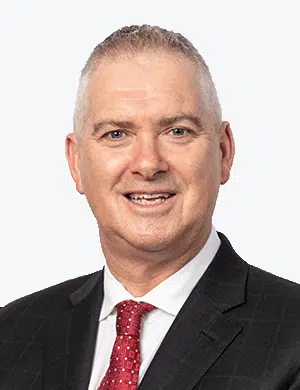Commentary from Greg Travers, Group Director of Tax Services at William Buck Accountants and Advisors
A leading tax expert says the 30 per cent tax plan is the most effective tax avoidance measure in the Federal Budget.
Greg Travers, Group Tax Director at William Buck Accountants and Advisors, says having a 30 per cent or lower effective tax rate encourages voluntary compliance with the tax system.
“This is a smart move. 94 per cent of individual taxpayers would have a 30 per cent or lower effective tax rate, by 2024/25. This is the single most effective tax avoidance measure in the budget, as it decreases motivation to aggressively tax plan,” says Travers.
“The arbitrage between an individual’s effective tax rate and the company tax rate is a major driver of tax planning and tax avoidance. The bigger the arbitrage, the bigger the motivation to tax plan,” says Greg Travers.
“Companies will have a 30 per cent tax rate, or 25 per cent for companies with less than $50M in turnover. By achieving a 30% effective tax rate for 94% of individual taxpayers, the vast majority of individuals will have an effective tax rate comparable to, or less than, the company tax rate,” he says.
Travers says, this tax rate will allow the ATO’s increased funding to be focused towards higher value, higher risk tax payers.
“With increased funding to the ATO’s Tax Avoidance Taskforce, the ATO can focus its compliance efforts on ensuring that the higher value higher risk taxpayers – including the 6 per cent of individuals with a greater than 30 per cent effective tax rate – are meeting their tax obligations,” says Greg Travers.
“This is a feature that future governments would be well advised to retain,” says Travers.
Travers says while this feature supports Australia’s progressive tax rate model, the incoming government needs to prioritise risks to the model.
“A feature of Australia’s tax system is the progressive tax rate model whereby those on higher incomes pay a higher rate of tax than those on lower incomes. The idea is to achieve a more equitable distribution of the tax burden,” says Greg Travers.
“While much attention is placed on misuse of trusts, other areas of tax law receive less scrutiny, but are equally important to ensure the integrity of the progressive tax rate model,” says Travers.
“This system can be undermined in various way such as by income splitting or by having taxable income go to a company, but the cash go elsewhere.”
“Anti-avoidance measures, such as those preventing splitting or diversion of personal exertion income and Division 7A are not always effective,” he says.
Travers says Division 7A needs to be simplified.
“We’ve had two sets of budget announcements and a Treasury consultation paper and still we are no closer to simplifying and reforming this key set of provisions,” says Greg Travers.
“The deferred start date of 1 July 2020 for these measures is probably unrealistic given there is not even draft legislation available and there are many unresolved questions, but we can’t still be sitting here in 2023 asking for Division 7A to be fixed up,” says Travers.
“The incoming government needs to prioritise this issue so that over the term of that government appropriate amendments to Division 7A can be drafted, consulted on and legislated,” says Travers.
ENDS
Keep up-to-date with our latest press releases




















